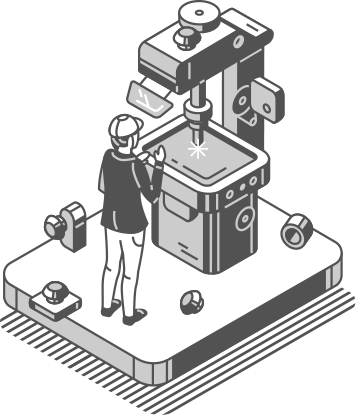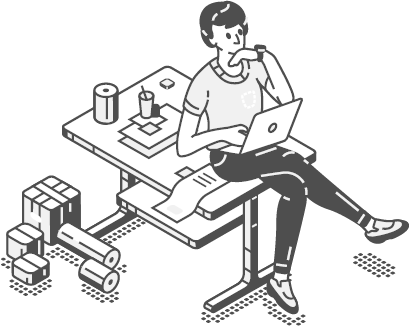- The lack of skilled labour, rising interest rates and raw material prices have led the construction industry to rethink the foundations of an activity that has remained virtually unchanged since Roman times in its traditional working methods and processes.
- The Cluster for the Industrialisation of Construction in Navarra (iCONS) is the response of the sector in Navarra to this movement in the background. Its leaders talk to us about its origins and objectives. But, above all, about its future projects linked to fields such as sustainability, new talent and public-private collaboration.
- In Navarra, construction involves 2,200 companies, employs 19,104 people and had an aggregate turnover of 4,370 million euros in 2021. iCONS not only aims to consolidate the activity, it also plans to boost its image abroad in order to attract resources and investment from abroad.
The construction sector is facing the most important transition process in its history. The lack of generational replacement or the increase in interest rates are among the factors that have driven this process of change. A transformation based on introducing and implementing industrial methods and processes to a process which, according to its professionals, has not changed in its more traditional ways of working “almost since Roman times”.
It is in this context that the industrialisation of construction arises, a new approach that prioritises the standardisation and manufacture of the components used to erect buildings and structures. All this with a twofold purpose: to increase efficiency through the widespread use of technology in order to strengthen the competitiveness and importance of this economic activity. And, on the other hand, to guarantee its sustainability both in the use of resources and in its relationship with the environment by promoting the development of new models of buildings that stand out for their energy efficiency. In addition to all of the above, there is a third aspect that should not be underestimated, the search for a new process that will save time and costs without compromising the final quality of the constructed building.
iCONS currently has 51 members and has established a series of working groups dedicated to the development of these five strategic axes: industrialisation, sustainability, digitalisation, rehabilitation and new talent.
Navarra did not want to remain on the sidelines of this movement and it was just a year ago, in July 2022, when the act of constitution of the Cluster for the Industrialisation of Construction in Navarre (iCONS) was signed. “There was a synergy between leading companies in the sector and the regional government that crystallised in a public presentation of the consortium on 20 October,” recalls its manager, Iñigo Porres. As for the objective of the entity, he explains that they want to “channel the tremendous changes in digitalisation and innovation that building is undergoing”.
LINES OF WORK
iCONS currently has 51 members and has established a series of working groups dedicated body and soul to the development of five strategic axes: industrialisation, sustainability, digitalisation, rehabilitation and new talent. “For the first time, there is an organisation that brings together the entire value chain,” says Porres, who does not hesitate to describe this step as “historic”.
Thus, he points out that “the joint and coordinated work of all the agents will not only allow construction to reach the next level. It will also have an impact on the creation of employment and wealth for the region, given the important role it plays in the economy of Navarra”. As an example of the latter, in Navarra alone, construction involves 2,200 companies, employs 19,104 people and its aggregate turnover was 4,370 million euros in 2021.
However, despite these figures, “the situation of the sector is, at the moment, quite conservative”, says the manager of the Construction Industrialisation Cluster of Navarra. In spite of that, Iñigo Porres is confident about the future and the role it can play in making Navarra a benchmark in the industrialisation of the sector. “Here we are in line with the strategy that the region is following when it comes to making itself known abroad”, says the iCONS manager.
The cluster has already developed a first action such as the establishment of an alliance with its counterparts in New Aquitaine and the Basque Country in the framework of the Atlantic Euroregion.
STRATEGIC ALLIANCE WITH FOREIGN AGENTS
Specifically, its proposal revolves around two main lines of work. The first would be linked to promoting those transversal levers that affect all sectors and may be of interest abroad, such as the development of infrastructures or tax incentives.
Secondly, there would be the part related to construction itself. “Here we are going to support five main areas that should lead to greater investor interest: training, R&D, sustainability, public-private collaboration and participation in international forums and trade fairs,” explains Porres. Regarding the latter, by the way, the cluster has already developed a first action such as the establishment of an alliance with its counterparts in New Aquitaine and the Basque Country within the framework of the Nouvelle Aquitaine-Basque Country and Navarra Euroregion.
"We are going to support five main areas that should lead to greater investor interest: training, R&D, sustainability, public-private partnerships and participation in international forums and trade fairs".

iñigo porres
Cluster for the Industrialisation of Construction in Navarra
PROJECTS WITH TWO NAVARRESE CLUSTERS
The commitment to internationalisation has not been the only step taken by the Cluster since its launch. As a recent member of the Navarra Innovation System (SINAI), it has begun to seek synergies with other consortiums similar to its own.
“For example, with the Automotive Cluster Association of Navarra (ACAN) we are going to collaborate so that they can explain to us how they managed to become a success story in automation, which is exactly what we now intend to implement in our organisations”, confirms Porres.
Along the same lines, he also says that they have two challenges on the table to work on together with Functional Print, the business group that works in digital printing, “to see what emerges from the intersection between the two worlds and how we can mutually benefit from what emerges from this relationship”, concludes the manager of the Construction Industrialisation Cluster of Navarre (iCONS), Iñigo Porres.
A dream in the making
Manufacturers and distributors (Gabyl, Perfinasa, Cementos Portland or PVT). Architects and engineers (DGA and FSGroupe); developers (Abaigar and Nasuvinsa); construction companies (ACR, Erro y Eugui, Obras Especiales, among others); specialists in support services and auxiliary industry (Larraby, Tesicnor, Gurpea, …); and training and research centres (CENER, Salesianos, the Public University of Navarra and the University of Navarra).
All of them form the hard core of the Navarra Construction Industrialisation Cluster (iCONS). A consortium that currently brings together 51 associates that cover the entire value chain of the sector: from manufacturing and distribution to installations, including architecture and engineering, promotion and housing construction. They also have a common purpose: to advance in the design of a new construction model that effectively responds to the new parameters demanded by society in terms of safety, comfort and, especially, environmental protection.
This is what the members of the Navarra Construction Industrialisation Cluster (iCONS) are working towards. A dream that, never better said, is in the midst of construction.




